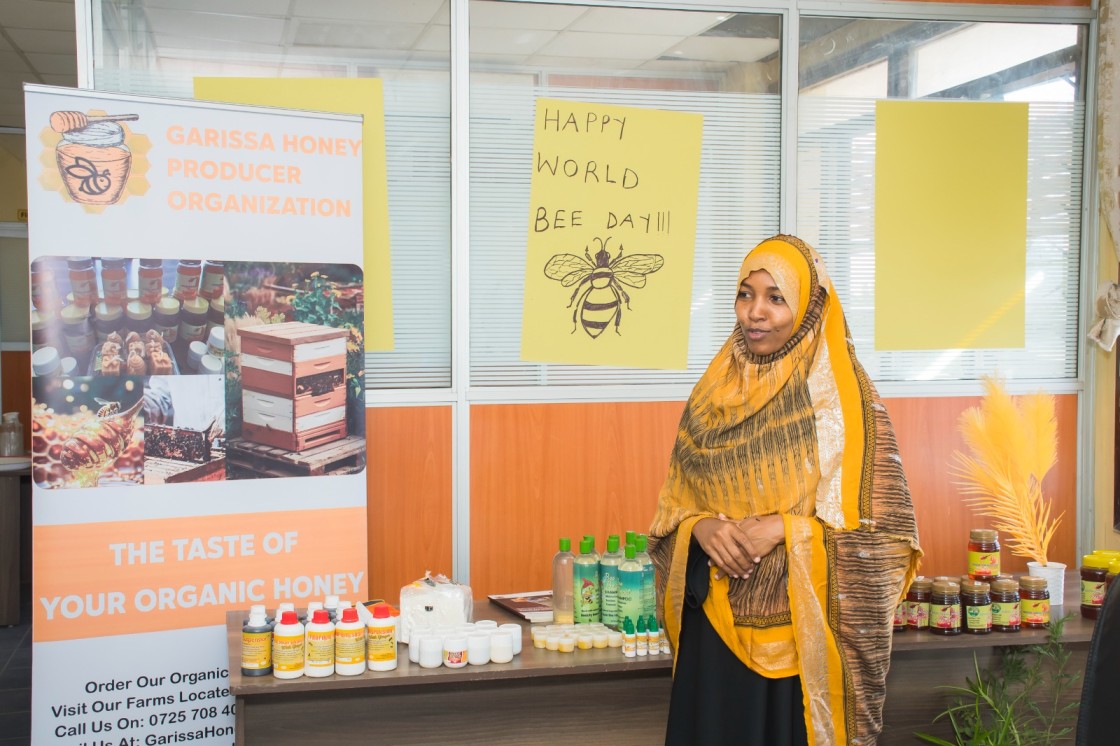How beekeeping is protecting ecosystems and livelihoods in Garissa

A quiet yet transformative movement is taking root led by none other than the Garissa Farmers Network and its passionate Secretary General, Ebla Hassan.
Along the lush banks of River Tana, indigenous trees thrive and birdsong fills the morning air.
A quiet yet transformative movement is taking root led by none other than the Garissa Farmers Network and its passionate Secretary General, Ebla Hassan.
With 1,022 beehives spread strategically along the riverbanks, the group recently harvested 823 kilograms of honey in a single month, each kilogram selling at Ksh 1,000.
But for Ebla and many of the farmers involved, the beekeeping initiative is about much more than economic returns.
“This is more than honey. It’s about survival of our environment, our farms, and our families,” Ebla said.
The River Tana's banks are among the few remaining areas in Garissa where indigenous trees and rich biodiversity continue to thrive.
But this fragile ecosystem faces constant threats from human encroachment, overgrazing livestock, and the looming impacts of climate change.
Ebla warns that if these ecosystems are depleted, the community could face serious food insecurity and the collapse of their alternative livelihoods like honey production.
“In 2023 and 2024, floods swept through our farms and destroyed our crops,” she recalled. “For many of us, beekeeping became more than a project, it became a lifeline.”
Ebla’s personal journey reflects the resilience and innovation that many farmers are now embracing. When she first acquired her farm, it was the beauty of a serene riverside spot that drew her in.
But that same patch of land soon became vulnerable to encroachment, particularly from livestock.
“Whenever I wasn’t around, cows would graze and trample the area,” she said. “After a lot of thought, I decided to place beehives there. Once the bees arrived, no animals dared come close.”
What began as an effort to preserve a piece of land turned into a catalyst for ecosystem restoration. The bees, it turned out, were not just guardians of the trees they were also stewards of a sustainable future.
Today, the Garissa Farmers Network is a beacon of hope and a model for climate adaptation.
The honey harvested supports households, especially during seasons when farming is untenable.
More importantly, the initiative has sparked a new consciousness about environmental stewardship among farmers.
“Diversification has truly helped us,” Ebla noted. “But more than that, it has reconnected us to the land in a deeper way.”
Climate change continues to test the resilience of Kenya’s arid and semi-arid regions. Garissa’s buzzing beehives offering more than just honey may offer a roadmap for sustainable living, rooted in indigenous knowledge and collective action.
“We are doing more than protecting bees,” Ebla said, her voice firm with conviction. “We’re protecting our future.”
